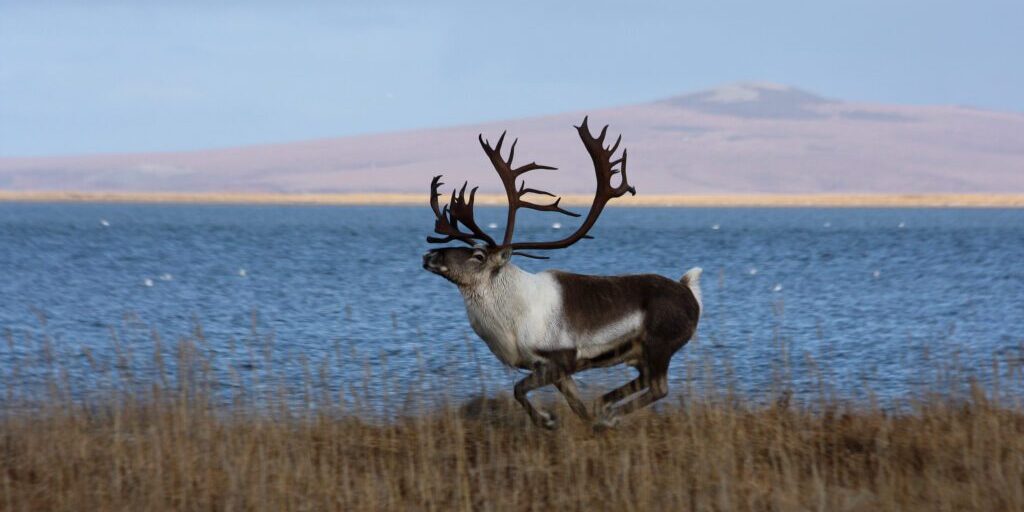Kotzebue residents expressed concerns last week that data used by the Alaska Department of Fish and Game to overturn the sport hunter ban in Unit 23 may be incomplete and misleading. Unit 23, around 25 miles north of Kotzebue, is home to the Western Arctic Caribou Herd, which many use for subsistence and sport hunting. The Federal Subsistence Board held the meeting to collect opinions regarding the special action to overturn the exclusion of non-resident caribou hunters in Unit 23.
During the July 18th public comment session, tensions were palpable in the Northwest Arctic Burough (NWAB). Walter Sampson, a Kotzebue subsistence hunter, was the first to take the microphone for public comment. “I apologize for taking time, but I am addressing my way of life,” he said. “Putting food on the table for my family is important. I’m not worried about bureaucracy.”
The main issues raised were challenges to the data and arguments surrounding potential increased user conflict, as well as concerns about the size and health of the herd.
Kotzebue resident Lance Kramer, with support of other subsistence hunters, questioned the new data’s significance and completeness. During their comment period at the meeting, Fish and Game stated that the newly gathered information was “sufficient” for passing the special action to allow sport hunting. Kramer thinks the term “sufficient” is too generous a description, however, and says he isn’t the only one to think so: “I even talked to the biologist who put this together, and he said that that word (‘sufficient’) is subjective.”
As a NWAB subsistence mapper, Kramer’s skeptical about the accuracy of the calf survival rate in particular. The 82% calf survival rate being cited to repeal the subsistence board’s decision comes from tracking 31 collared calves migrating from Onion Portage to their winter resting grounds. The survival rate comes from how many calves survive that journey. Kramer argues that starting at Onion Portage skips a lot of the migration that caribou undergo: “the problem is that that’s not where the calves are declining. The calves are declining in their summer grounds through their migration route.”
His second contention is with Fish and Game’s caribou population count. Kramer emphasizes this number is just an estimate and notes the official population count won’t come until sometime this fall. The latest caribou count is estimated at 206,000. The Western Arctic Caribou Herd Working Group, which Fish and Game is a part of, stipulates that, at 200,000 caribou, non-subsistence hunters must be banned from Unit 23. As non-resident hunter Larry Bartlett put it, “Getting to the edge of the cliff can be scary, but it’s not the same as falling over the edge.”
Kramer thinks that nearing the 200,000 edge is enough reason for concern. He says that if the herd is declining, even in a slower or more leveled-off way, the state should still be concerned about the herd.
The last issue raised at the meeting last week was the possibility of increased user conflict. Some people at the meeting believe if the special action goes through, then there will be more tension between sport and subsistence hunters. Kramer thinks both groups won’t share the same territories because caribou have migrated to lands sport hunters couldn’t access if banned from Unit 23.
The Federal Subsistence Board will make their decision on whether the exclusion of non-subsistence hunters is permanent sometime this fall.








